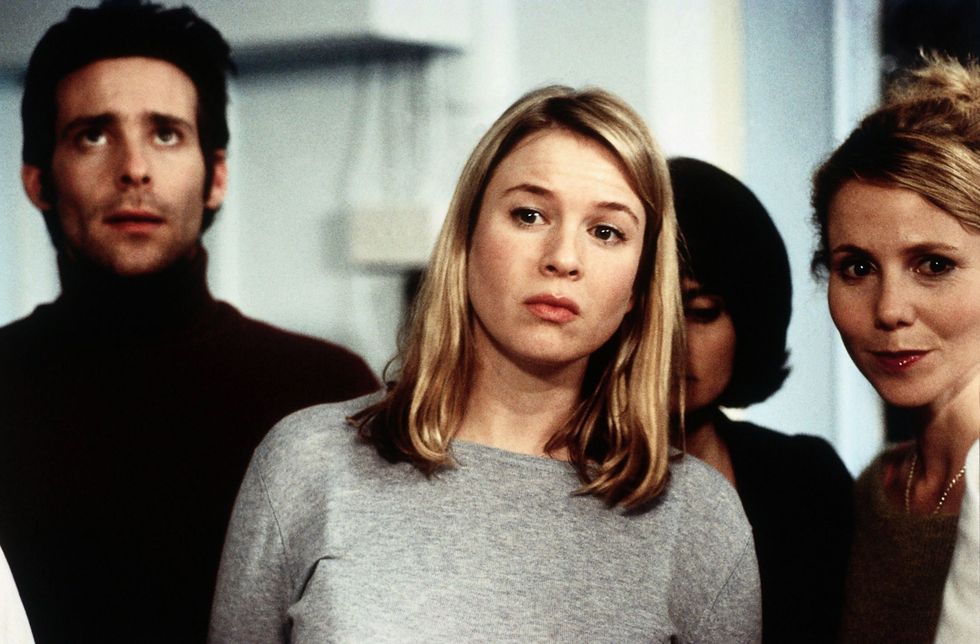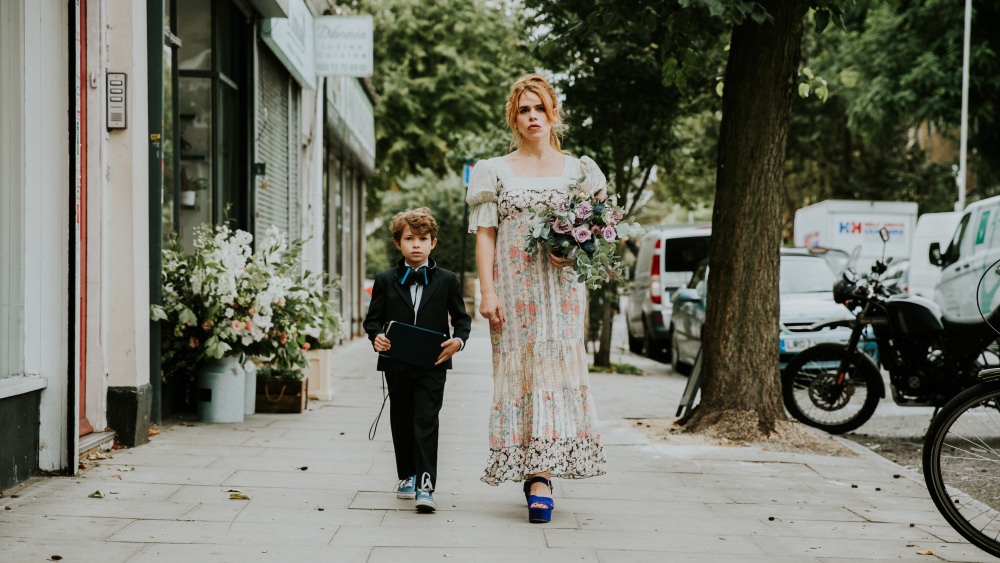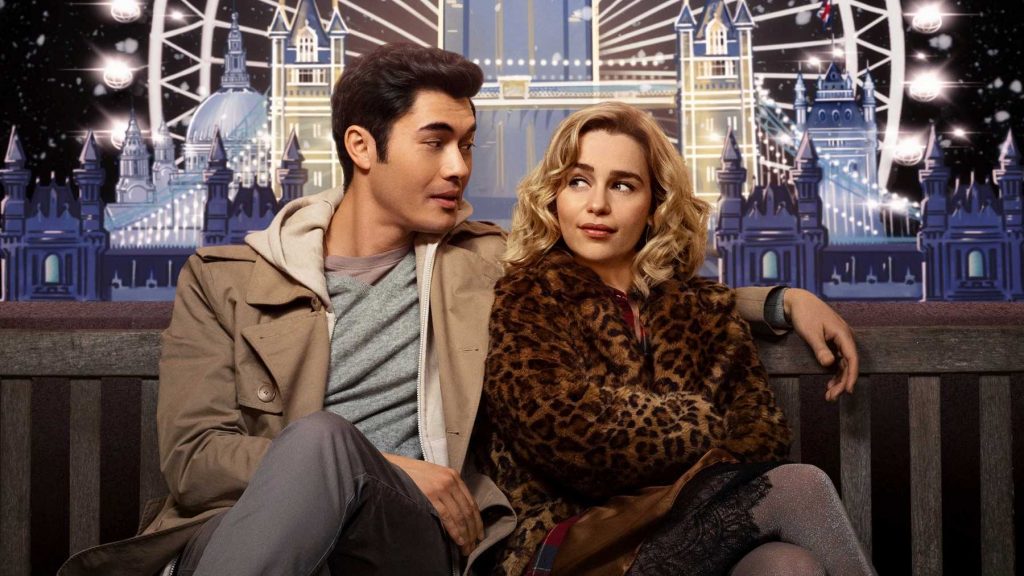‘[R]om coms will never die THEY WILL JUST EVOLVE INTO NEW FORMS,’ one Twitter user wrote in response to series of Tik Tok videos playing out a queer romantic fantasy.
‘om coms will never die THEY WILL JUST EVOLVE INTO NEW FORMS,’ one Twitter user wrote in response to series of Tik Tok videos playing out a queer romantic fantasy. It’s true, no other genre has endured the declaration it’s dead and born again as many times at the romantic comedy. It’s withered on the vine and flourished, it’s succeeded wildly and failed gloriously. It remains one of the most beloved and hated genres in cinema. Yet, when it gets it right it can soar to unimaginable heights.
It may seem like the UK is not a perfect fit for the hopelessly romantic. Are we too worried about causing a fuss to perform grand-gestures? Do the words our grandmothers said, ‘you’ll catch your death’, stop us kissing in the rain? They didn’t use to. Once, there was a gleaming moment of splendour when the UK was a major exporter of meet-cutes, break-ups, and running to the airport. In the nineties and early noughties films like Four Weddings and a Funeral, Notting Hill, Bridget Jones’s Diary, and Love Actually enjoyed substantial box office returns and critical success. For around fifteen years the UK produced some of the most universally recognisable romantic comedies ever made. So, in a world governed by concerns around Brexit and what do we have to offer the world, have we forgotten that once we lucratively exported romantic comedies?
To understand the British romantic comedy and its success you have to understand how the world sees Britain. The blundering brits who inhabit these films are too awkward and well-mannered for games of love, in stories that are riddled with etiquette. It’s no wonder that Hugh Grant, the angel-faced-bumble-machine, was the heartthrob of the period. Grant typified what the wider world wanted from a British man: received pronunciation, charm, and good looks. But what about British women?

Bridget Jones offered that alternative, a woman to root for instead of a man to lust after. Renée Zellweger starred as the supposed British everywoman; awkward, clumsy, and chain-smoking. Prone to embarrassing encounters and passionate conundrums she resonated with a generation of women and so she returned in 2016, after a twelve-year hiatus. Bridget was, and still is, a symbol for the single woman; for better or worse. Some find comfort in Bridget’s fallibility, while others fling the name as an insult akin to ‘crazy-cat-lady’. There is no doubt, however, that the character is one of the most recognisable in British cinema and audiences want to see her return once more.
In Britain, we have a history of beloved female characters in romantic quandaries. The prolific writer (and star of the ten-pound note), Jane Austen revelled in tales of love won & lost (Bridget Jones herself was based on the quick-witted fan-favourite Elizabeth Bennet). Nevertheless, Austen is also famous for her male love interests. Pride and Prejudice’s Mr. Darcy, for example, has been co-opted by many as a slang term for the ‘perfect man’. Yet, the two most famous iterations of Darcy (both played by Colin Firth, in the BBC Mini-series and the Bridget Jones films) are sexualised ideals of the polite, if not substantially repressed, British man; someone who is brooding, quiet, and unable to open up.

Where does that leave us in 2019? The Beatles infused Yesterday was, at its strongest moments, a fairly decent romantic comedy that saw Lily James and Himesh Patel as friends who might be more. The upcoming Rare Beasts, written and directed by Billie Piper, calls itself an ‘un-romantic comedy’ and casts Piper as a career-driven single mother who falls in love with a man who holds more traditional values. The film, which is screening at the London Film Festival in October, based on its description might be willing to bend those structures we’ve come to know. Then, of course, we have Last Christmas, which sees a man and a woman fall in love in London during the festive period set to the music of George Michael and Wham… which may be the most ‘British’ sounding film ever.

There are some glaring problems within the genre, of course. The characters, for example, are all so often white, without disabilities, and almost always straight – even if Last Christmas is inspired the music of a queer icon, the trailers include no suggestion of that. Britain in these films often avoids questions of sexuality along with issues like class, political unease, race, and wealth disparity that grip our country in real life. They’re made to appeal to anglophiles over-seas by presenting these beguiling men and relatable women, the idyllic countryside locations and the rainy London streets – not to represent how it actually is.
It is true that cinema can’t always reflect the times and the argument for it as escapism can be just as valid. Though, it’s sad to watch a genre continually avoid engaging with the world or represent all those who live in it. Maybe a change is due? Queer rom-coms are in the works in America and recent British films, like Animals, show a shift in perspective in the UK. Who knows who’ll be kissing in the rain in years to come…
Also Read: Is Queer Autobiographical Cinema Subtly Political?














1 Comment
Comments are closed.